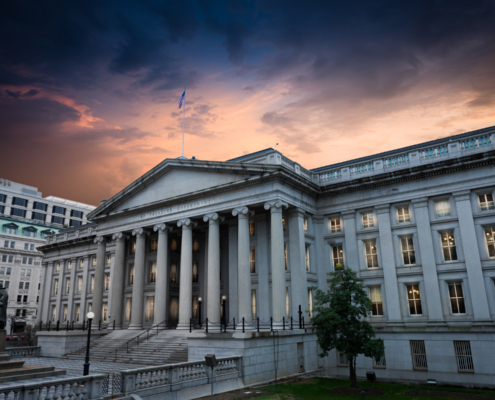
Targeting Russia’s IT Dependencies
Delve into the recent determination issued by OFAC, which imposes significant additional restrictions on the provision to Russia of IT consultancy and design services as well as IT support and cloud-based services of enterprise management and design and manufacturing software. Multinational tech corporations, financial institutions, and other companies still operating in Russia will likely require licenses to continue operating there.

Understanding and Addressing Fraud and Corruption Risks
In our recent webinar, industry experts delved into the crucial topic of fraud and corruption risks. From seasoned professionals to anti-corruption activists, the webinar featured a panel of distinguished speakers: Steve Burgess, Nikki Kenyon, Chris Williams, and James Wasserstrom. This blog post aims to summarize the key points discussed during the session, equipping readers with the knowledge necessary to navigate these risks effectively.

OFAC’s Compliance Guidance in Action
The Treasury Department’s Office of Foreign Assets Control (OFAC) five years ago published its Framework for OFAC Compliance Commitments. This guidance remains the most comprehensive articulation of OFAC’s compliance expectations to date. Although it notably stopped short of mandating a sanctions compliance program (SCP), recent enforcement actions demonstrate the implications of not having an SCP in place.

Fake News vs. Real News – The Importance of Media in Due Diligence
We exist in an age when mass media outlets are criticized for bias and manipulation, and when foreign disinformation efforts further erode trust in traditional journalism. Confidence in media reports not just as a compliance tool, but also as reliable news sources is likely at near record lows as well. However, adverse media reports are a critical compliance tool that can serve as a springboard for more extensive due diligence research and can help identify potential indicators of sanctions evasion and other financial crimes.

Liberating Limits: OFAC Licenses
/
0 Comments
The U.S. Department of the Treasury’s Office of Foreign Assets Control (OFAC) safeguards national security and helps advance U.S. foreign policy objectives by administering the U.S. sanctions regime. OFAC’s general and specific licenses serve as key mechanisms for authorizing and regulating certain transactions that would otherwise be prohibited under sanctions programs. The exceptions provided by licenses help businesses and individuals navigate international transactions without violating U.S. sanctions policies.

Stuck and Seized – Consequences of Forced Labor
Global economies are more interconnected than ever, and human rights abuses can have a profound impact on supply chains and disrupt the flow of goods. Recent deliveries of certain luxury vehicles, such as Porsches, Audis, and Bentleys have been delayed because a small component that links those vehicles with computer networks was produced by a Chinese company linked to forced labor and surveillance of Uyghur populations in China.

Bitcoin Breakthrough – Navigating the New Era of SEC-Approved Spot Bitcoin ETPs
The US Securities and Exchange Commission's (SEC) landmark approval of 11 Spot Bitcoin Exchange-Traded Products (ETPs) from several leading financial firms, including BlackRock, Fidelity, and Grayscale Investments, this month marks a significant shift in the regulatory landscape for virtual assets.

What Financial Institutions Can Learn from the Binance Settlement
Explore lessons learned from the recent Binance settlement including risk mitigation strategies for banks and other financial institutions.

MiCAR Defined – The EU’s Blueprint for Crypto Regulation
The Markets in Crypto-Assets Regulation (MiCAR) went into effect on June 29, 2023, and will be fully applied by December 30, 2024.
